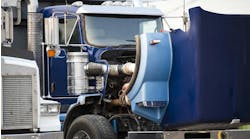Poor air quality in many of our nation's cities has led municipal fleet operations to take a hard look at how much their vehicle emissions are contributing to the problem. While the new, more environmentally friendly diesel engines are playing a big role in reducing harmful emissions, alternative fueled vehicles are also making their way into the ranks of city fleets in increasing numbers.
For the City of Fresno, CA, smog is a particular problem because it's located in the heart of the San Joaquin Valley, which is surrounded by high mountain ranges on three sides. Pollutants generated by vehicles, industry and agriculture, says John Hunt, fleet manager, City of Fresno, are often trapped for weeks, accumulating to unhealthy levels.
As the largest city in the San Joaquin Valley, the City of Fresno operates a fleet of approximately 1,800 vehicles. Hunt notes that of this number, about 15% are heavy-duty diesel powered units, which account for the greatest percentage of harmful emissions generated in the performance of city services. “Within the heavy-duty, non-transit city fleet, refuse trucks consume about 75% of all the diesel fuel used,” he reports.
It made good sense, therefore, for the city to focus on its refuse trucks as a starting point in achieving significant emissions reductions. The goal, Hunt says, is to reduce ozone-forming emissions by over 40% and particulate matter by over 85% throughout the current 123-unit refuse truck fleet.
Last year, initial orders were placed for 33 LNG-powered trucks. The truck chassis are Autocar Expeditor units spec'd with Allison automatic transmissions, and both Cummins 8.3-liter C Gas Plus dedicated natural gas engines and Cat C-10 Dual Fuel natural gas engines. Truck bodies for residential collection units were supplied by Heil Industries and McNeilus.
The city's Heil representative, Ed Inahara, of Ruckstell California Sales, says Fresno bought 23 Heil Rapid Rail continuous pack automated side loaders. “The city did a thorough analysis of its needs and determined that the Rapid Rail would offer the lowest overall total cost of ownership. It accommodates LNG tanks better than some other automated refuse collection vehicles and can haul six to seven tons of payload per unit,” he reports.
The refuse bodies also feature Heil's Operate-at-Idle System, which enables a vehicle to perform all its normal functions to load and/or compact trash at standard operating speeds while the vehicle engine is at idle. Heil says operating at idle reduces engine noise and saves up to a gallon of fuel per hour, thus reducing emissions and enabling drivers to finish routes up to 20% faster.
The City of Fresno's commercial collection units were supplied by Smart Truck Systems. According to Hunt, these trucks have increased payload capacity through lighter, stronger body design and the use of four-axle chassis.
The new trucks, which are operated by the Solid Waste and Community Sanitation Divisions of the Dept. of Public Utilities within the City of Fresno, work six days per week. Procurement and maintenance of the trucks are the responsibilities of the Fleet Management Div. of the General Services Dept.
Refuse truck maintenance is conducted from a 43,000-sq.-ft. central shop facility staffed with 19 employees. Maintenance is tracked using FleetFocus state-of-the-art fleet management software from Maximus.
Hunt says additional new trucks are currently on order and that by the spring of 2005 about 50% of the refuse truck fleet will be powered by LNG fuel. “This change to LNG will result in a reduction of 500,000 gal. in diesel fuel usage annually.”


